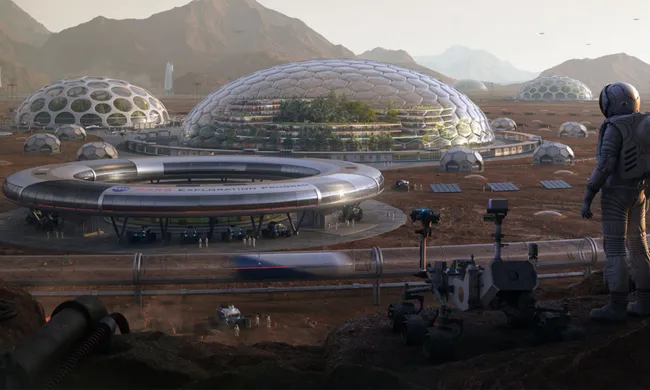Travel to Mars
Be the first citizen of the colony

There is no planet B? Well, people tend to say that.
But we managed to build green houses, beautiful homes and an earth like
environment under several connected glass domes at Mars. We provide
housing and employment at our technological and social facilities as
well as room and activities for leisure and recreation for 2 000 new
citizens. Apply now to become one of them. The first ship will leave
earth in 2024.
Since the 20th century, there have been several proposed human missions
to Mars both by government agencies and private companies. All of the
human mission concepts as currently conceived by national governmental
space programs would not be direct precursors to colonization. Programs
such as those being tentatively planned by NASA, Roscosmos, and ESA are
intended solely as exploration missions, with the establishment of a
permanent base possible but not yet the main goal. Colonization requires
the establishment of permanent habitats that have the potential for
self-expansion and self-sustenance.

Two early proposals for building habitats on Mars are the Mars Direct and the Semi-Direct concepts, advocated by Robert Zubrin, an advocate of the colonization of Mars. SpaceX have proposed the development of Mars transportation infrastructure in order to facilitate the eventual colonization of Mars. The mission architecture includes fully reusable launch vehicles, human-rated spacecraft, on-orbit propellant tankers, rapid-turnaround launch/landing mounts, and local production of rocket fuel on Mars via in situ resource utilization (ISRU). SpaceX's and Mars One's aspirational goal is to land the first humans on Mars by 2024.
Read more on Mars One 👽